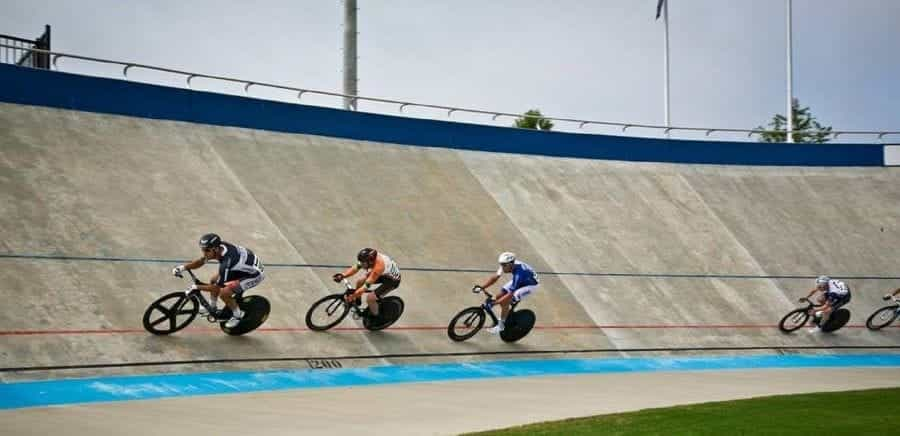Keirin Betting Exceeds $9bn Annual Wagering in Japan
One of the most popular sports for betting in Japan has exceeded $9bn in annual betting wagers for the first time since its inauguration at the Sydney Olympics in 2000. The Keirin is a gritty and captivating version of velodrome cycle racing, and it’s perfectly suited for gambling.

Keirin is a sport that holds huge appeal for gamblers in Japan. This summer the Olympic Games will show the other side of the traditionally rough and unpolished working-man sport, as it takes on a more bourgeois format. ?skeeze/Pixabay
Japan’s premier cycling competition is a member of the exclusive list of just four sports that the Japanese government has permitted for gambling, the others are speedboat racing, motorbike racing, and horse racing. Whilst the horses are formidable cultural phenomena in Japan, it is Keirin that quietly defines the culture of the aging gamblers of this country.
Each year popularity of Keirin increases, as does investment in its grassroots, and establishment of its infrastructure are key areas of investment for Japanese sport governing bodies. Wealthy and not-so-wealthy punters are increasingly choosing Keirin betting as their favorite pastime, in an overwhelming demographic of males of pension age, track betting on Keirin has never been more booming and prosperous than it is today.
Japanese Fixation with Keirin Betting
Taking place at velodromes across the country, cyclists competing against each other lineup in pastel-colored uniforms, with a clearly marked number representing their individuality amongst a field of 9 riders. It feels like jockeys lining up at the starting cages of the Grand National, with trackside bookmakers displaying the odds of riders, and TV cameras streaming the action to spectators and gamblers across the country, this is a serious business, with huge amounts of money involved.
The races are simple, taking place over a distance of approximately 2 kilometers, riders begin the race at a snail’s pace, crawling along behind an electronic pacer bike which gradually increases the pace with each lap. As the speed approaches 50km/h, and with about 2 laps of the velodrome to go, the pacer bike drifts off the track and the real race begins. Riders begin to nervously edge closer to the front of the pack, jostling, shoulder barging and even headbutting one another, all of which is permitted. Reaching speeds of up to 70km/h a frantic dash to the finish line ensues where the first bike across is declared the winner.
Watching a group of cyclists go round-and-round in circles is surprisingly fixating, and has captured the affection of gamblers across the country. Before the beginning of each race, the riders are paraded around the track, with tipsters weighing up their winning potential before frantic betting begins. A popular market is a tricast, a long-odds and highly risky bet, where the top three riders have to be correctly placed on the betting slip.
Such is the seriousness of the betting on Keirin, riders are kept in isolation, with no access to phones or the internet during the short racing window or a few days. Given that the evolution of Keirin into a $9bn annual betting turnover sport, it is far from surprising that the competitors are under a lot of outside pressure to perform, or comply to the whims of race fixers trying to corrupt the outcomes.
The atmosphere is electric at the trackside of a Keirin event, and hawk-eyed gamblers look for any small clue in the allegiances of the riders, or subtle clues regarding their fitness displayed through disposition and body language. As with horse racing, predicting the winning outcome is incredibly difficult. The ferocious nature of these races means there are usually crashes, and the riders are customarily clad in vast amounts of protective equipment to prepare for the worst.
Keirin Takes On A More Bourgeois Setting at Tokyo 2020
Although the Tokyo 2020 Olympics won’t be the first appearance of Keirin at an Olympic Games, it is a significant moment as it will be appearing at a home Olympic Games in front of its home crowd for the very first time. The change of scenery will be in stark contrast to the smoke-filled rooms that line the tracks of Tokyo’s inner-city velodromes. But as the Tokyo Olympic Games deals with the threat of cancellation, the world will be lucky to witness Keirin at the Olympics this summer.
As the sport of Keirin is trying to modernize and move away from the stigma of an old-mans gambling hobby, governing bodies have begun holding more women’s races, and gambling-free races to stoke a more organic interest. But as the international Keirin community descends on Japan, we’ll be reminded of the two very different versions of this sport. For the purist, all eyes will be firmly on the end of year Keirin Grand Prix, where the nation will watch the best riders in Japan compete for huge cash prizes.




